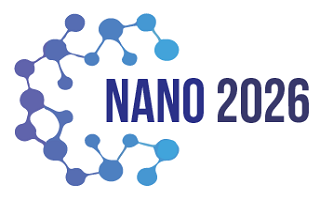3rd World Congress on
Nanotechnology
October 29-30, 2026 | Berlin, Germany

Nano 2026

Chuvash State University, Russia
Abstract:
The intensive development of Data Science and artificial intelligence methods opens up new possibilities for fundamental and applied research in the field of high-energy materials. The accumulated significant volume of experimental data on the combustion characteristics of such materials, particularly solid rocket propellants (SRPs) with nano additives, creates the prerequisites for building intelligent predictive models in the framework of world famous “Materials Genome Initiative” (USA).
Traditionally, experimental research and modeling are aimed at solving the direct problem: determining the burning rate for a given material composition and conditions (e.g., pressure). However, for the efficient development of new compositions with required properties and the optimization of existing ones, solving inverse problems is critically important.
In this work, the authors present an approach based on the application of Data Science methods, particularly neural networks, for solving key inverse problems in the field of SRP combustion. Based on extensive experimental data, including results on the burning rate of various SRP compositions with micro- and nano-sized additives (metals, metal oxides, composite catalysts, thermites, organic metal salts, carbon nanomaterials), multifactor computational models based on neural networks were built.
These models are capable of identifying complex, nonlinear dependencies between the component composition, combustion conditions, and the achievable burning rate. The developed models allow solving inverse problems, such as:
1. Determining the optimal component composition of SRP ensuring a specified burning rate under specific conditions.
2. Predicting the conditions (e.g., pressure) necessary to achieve a desired burning rate for a given composition.
3. Conducting "virtual experiments" – predicting the burning characteristics for compositions and additive combinations that have not been directly studied experimentally.
The developed models demonstrate the potential for creating a digital platform, which can be considered a basis for forming a "Genome of High-Energy Materials". Such a platform will accelerate the material development cycle through rational design and a reduction in the number of expensive physical experiments.
A key direction for further development of this approach is enriching the predictive models with fundamental data about component properties (metadata), including quantum, physicochemical, and thermodynamic characteristics, which will increase prediction accuracy and expand the applicability of the models beyond the training sample.
The presented approach is of significant importance for the development of technologies for designing and additive manufacturing of modern energetic materials.
Biography:
Dr. Victor Sergeyevich Abrukov is a Russian physicist and Head of the Department of Applied Physics and Nanotechnology at Chuvash State University. He is known for his work in combustion science, nanotechnology, and the use of AI in material research. His research focuses on computational models of high-energy materials, with numerous international collaborations and publications in interdisciplinary fields.
